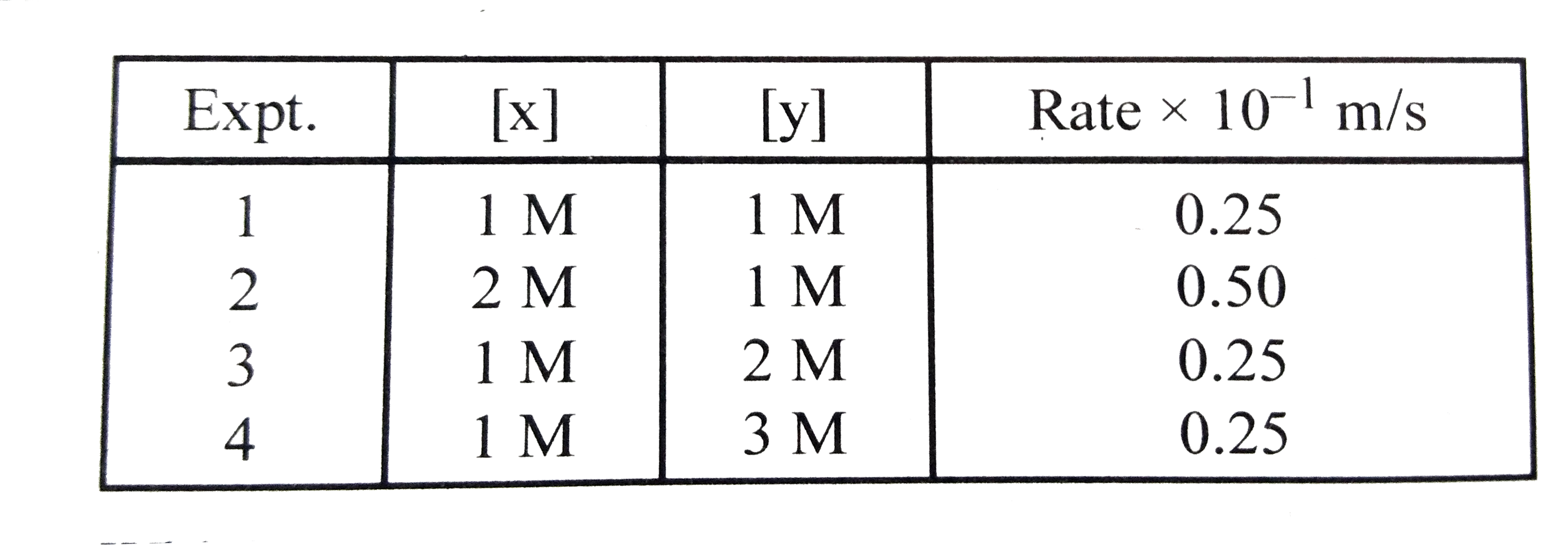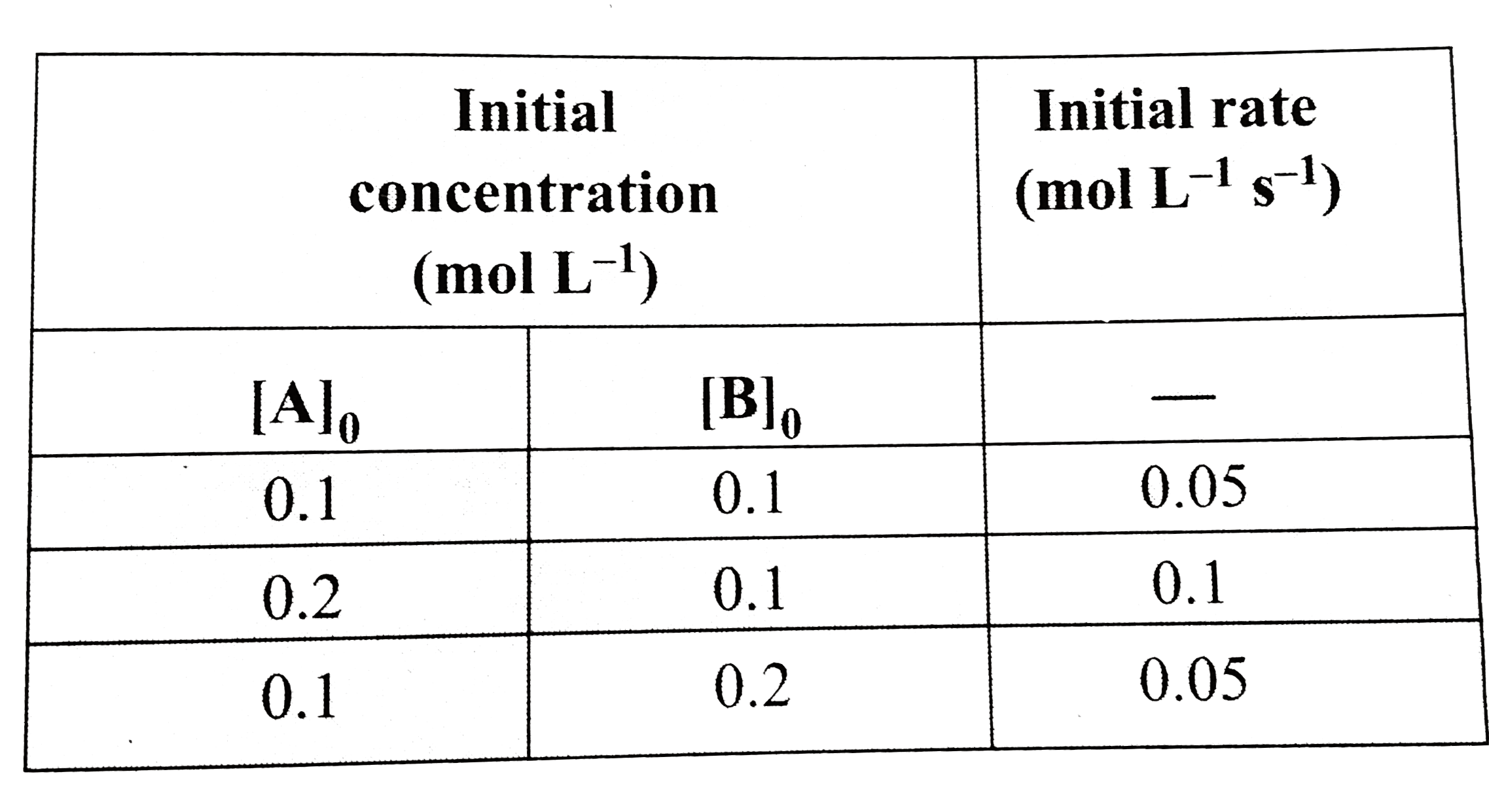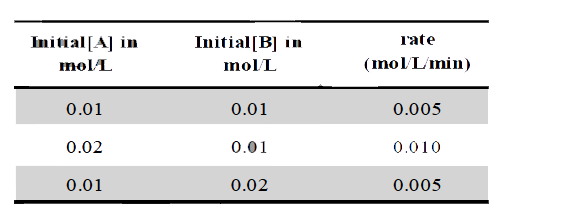For a reaction x+y→z data is as follows :

which one is the rate law equation ?
A
Rate =k[x][y]
B
rate=k[x0][y]
C
Rate =k[x][y]2
D
Rate =k[x][y]0
Video Solution
Text Solution
The correct Answer is:D
Compare experiment no .1 and 2 .
[y] is constant and [x] is doubled , the rate becomes 2 times I .e, 21
∴ for x,n=1
Compare experiment no 3 and 4.
[x] is constant and [y] is 3/2 , the rate is same , hence the rate is independent of [Y] , n =0
∴ Rate law is , Rate =k[X][Y]0
|
Topper's Solved these Questions
- CHEMICAL KINETICSBook:MARVEL PUBLICATIONChapter:CHEMICAL KINETICSExercise:TEST YOUR GRASP
Explore 50 Videos
- BIOMOLECULESBook:MARVEL PUBLICATIONChapter:BIOMOLECULESExercise:TEST YOUR GRASP
Explore 40 Videos
- CHEMICAL THERMODYNAMICS AND ENERGETICSBook:MARVEL PUBLICATIONChapter:CHEMICAL THERMODYNAMICS AND ENERGETICSExercise:MULTIPLE CHOICE QUESTIONS (TEST YOUR GRASP)
Explore 50 Videos
Similar Questions
Knowledge Check
For a reaction ,A+B→C data is as follows :

the rate law for the reaction isARate =K[B]3BRate =[A]2[B]CRate =k[A]3DRate =[A][B]2For the reaction A→ B , the rate law expression is : Rate = k[A]. Which of the following statements is incorrect?
AThe reaction is said to follow first order kineticsBThe half life of the reaction will depend on the initial concentration of the reactantC‘k’ is constant for the reaction at a constant temperatureDThe rate law provides a simple way of predicting the concentration of reactants and products at any time after the start of the reactionA+2B→C+D for a reaction from following data correct rate law =
 ARate =K[A]2[B]Brate=k[A]2[B]2CRate =K[A][B]2DRate =K[A][B]
ARate =K[A]2[B]Brate=k[A]2[B]2CRate =K[A][B]2DRate =K[A][B]
For the given reaction, A+B→ Products Following data are given

(a) Write the rate equation
(b) Calculate the rate constant
View SolutionFor the given reaction
A+B→ Products,
the following data are given.

(a) Write the rate equation.
(b) Calculate the rate constant.
View SolutionFor the reaction 2X+Y→ 2Z the rate of disappearance of X si 0.08 M/s (a) What is the rate of formation of Z (b) What is the rate of the reaction
View SolutionFor a reaction X+Y→Z, rate ∝[X]. What is (i) molecularity and (ii) order of reaction ?
View SolutionThe system of linear equations kx+y+z=1,x+ky+z=1andx+y+kz=1 has a unique solution under which one of the following conditions ?
View Solution



